Why climate change could destroy this popular skincare product
This skincare staple is so popular one is sold every two minutes. But there’s a worrying reason the “miracle” product is under threat.
If you poke around any beauty cabinet in the country, chances are you’ll find a tub of shea butter inside.
Demand for shea has exploded across the Western world in recent decades, with more and more of us becoming hooked on the “miracle” moisturiser that’s used to combat everything from dry skin to wrinkles.
But some new and serious threats to the skincare favourite are looming — and while it’s bad news for shea addicts, it could be disastrous for the remote communities that produce it.
CHANGING LIVES
When news.com.au visited Mbanayili, a remote village outside Tamale in northern Ghana over two stiflingly hot January days, things were looking bright.
There was a fully-staffed medical clinic, where a healthy baby boy was born during our stay.
There was a school, filled with throngs of excited, beaming kids in uniform.
And the women were front and centre, standing side-by-side with the men as we were welcomed into the community.
But things weren’t always so rosy.
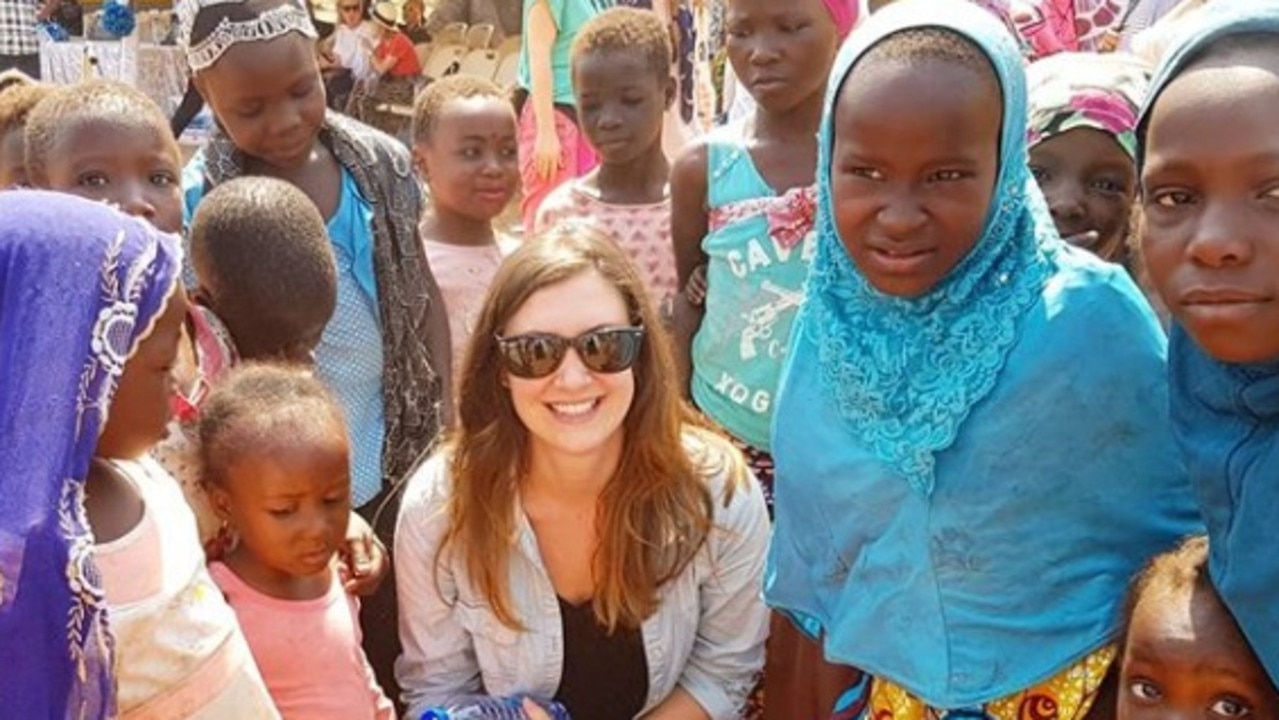
Northern Ghana has long been neglected and underfunded by the government, and remote Mbanayili is no exception.
Just a few years back, there was no clinic. Kids had to travel far to attend school, if their families could afford to send them at all.
And many women were all but excluded from public life, held back by their patriarchal society as well as shame over their humble clothing. That’s because few earned an income of their own — and any money they did come by went towards feeding, clothing and educating their children, and helping their families.
That changed with the establishment of the Tungteiya Women’s Collective in the 90s, which united hundreds of female shea producers from 11 disadvantaged and remote communities in the region and provided them with a stable income that wouldn’t otherwise be possible.
The Body Shop, which has been selling shea products since 1994, is the association’s main buyer, and it pays a premium which is managed by the women and used on vital community projects like schools, wells and clinics.
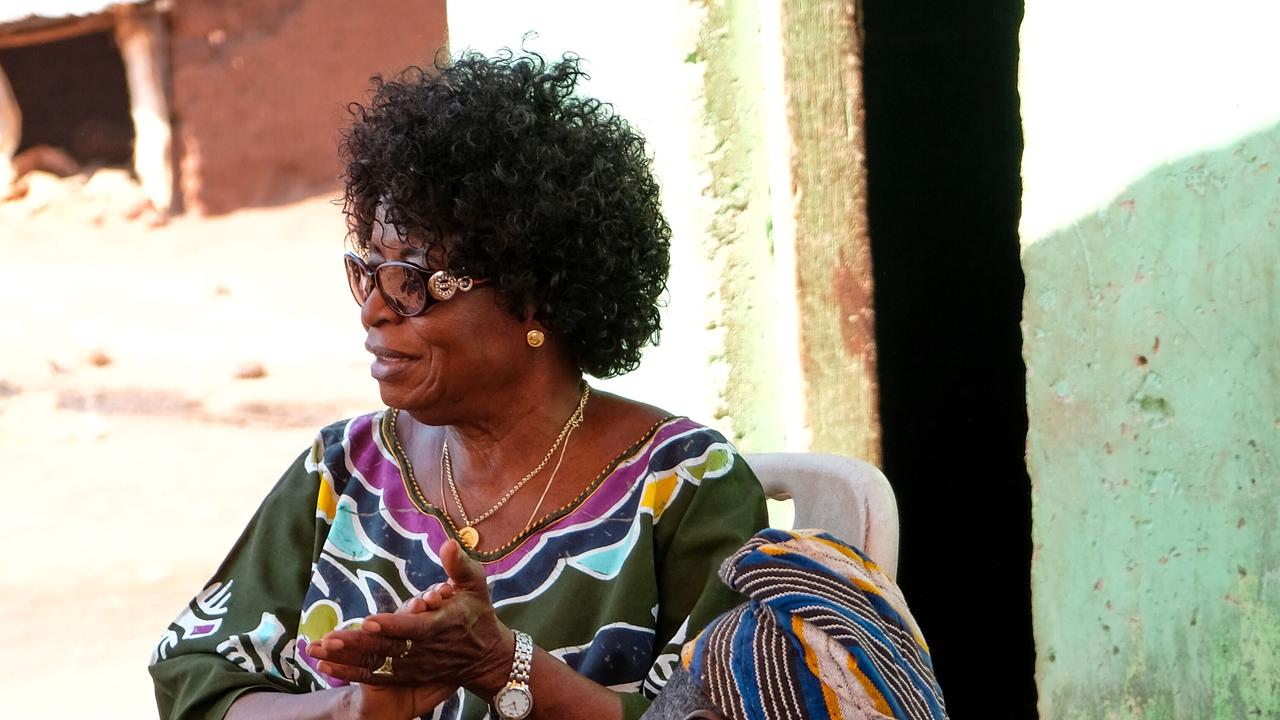
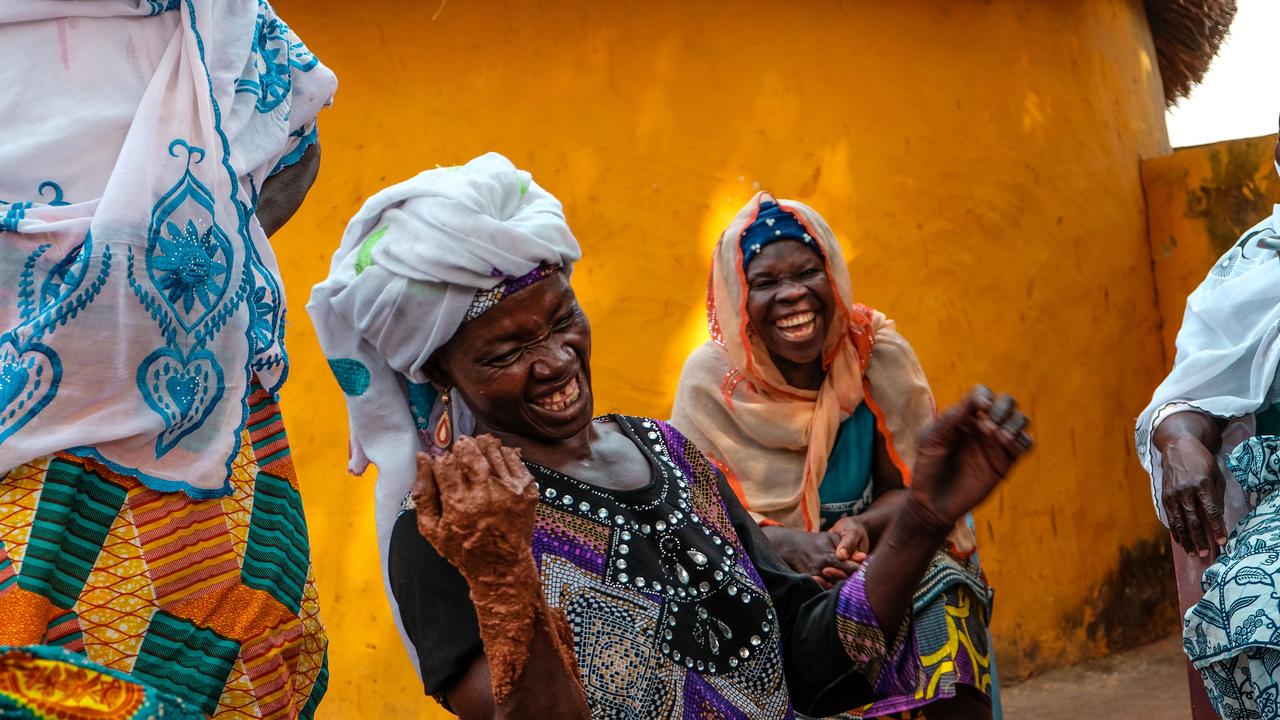
That cash is managed by the Northern Ghana Community Action Fund (NOGCAF) — and chairwoman Madam Fati Paul said it had transformed thousands of lives.
“The women supplement their family incomes, take care of their children’s health and educational needs. It has given them a voice … The women are now respected by their spouses and other community members because of their tremendous contribution to the welfare of their families and development of their communities,” she said.
Another Ghanaian elder, Safura Iddi, said simply: “The future is bright … the women are so happy. They feel proud.”
AN UNCERTAIN FUTURE
But today, there’s a new cloud hanging over that bright future.
While yield from the shea tree has always been high, that is now changing.
Climate change has affected rainfall patterns in recent years, and both the quality and quantity of nuts have plummeted — a problem that has seriously alarmed the community that depends on them.
“The shea tree used to bear so much fruit … even the tiniest tree. But now with climate change, small trees don’t bear fruit like they used to,” Ms Iddi said.
And in a surprising twist, it seems the shea industry could potentially end up a victim of its own success.
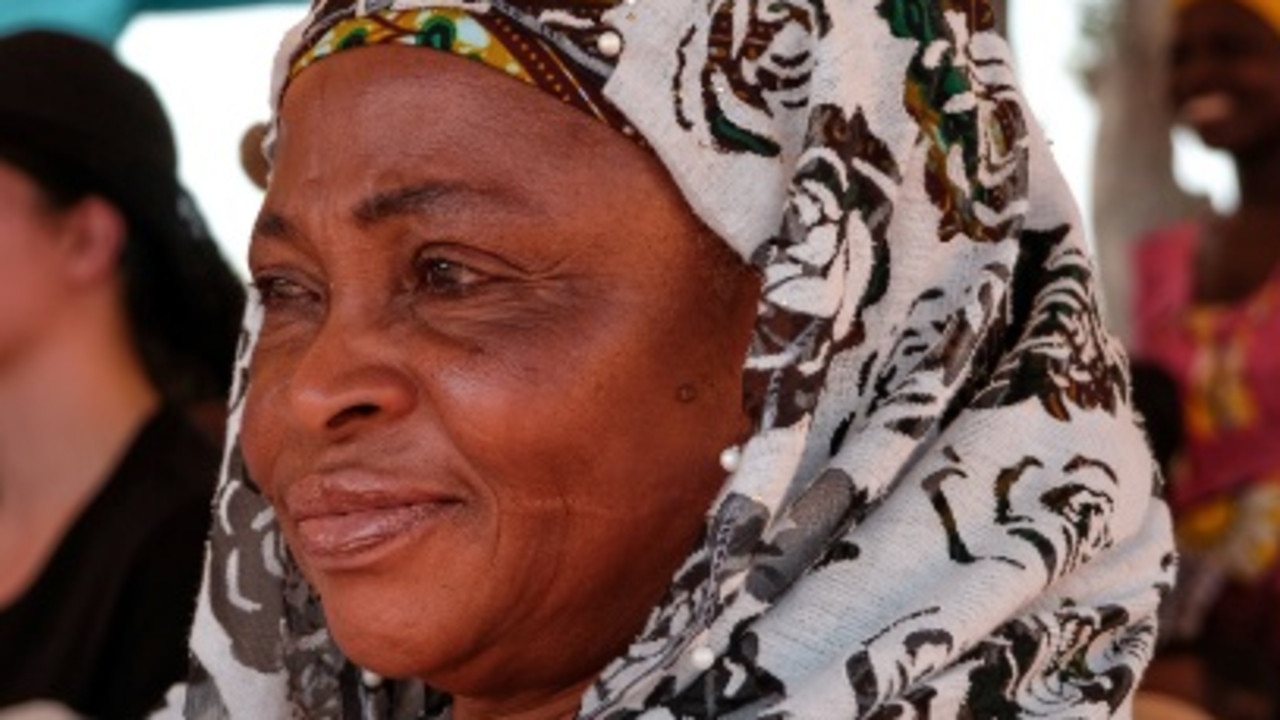
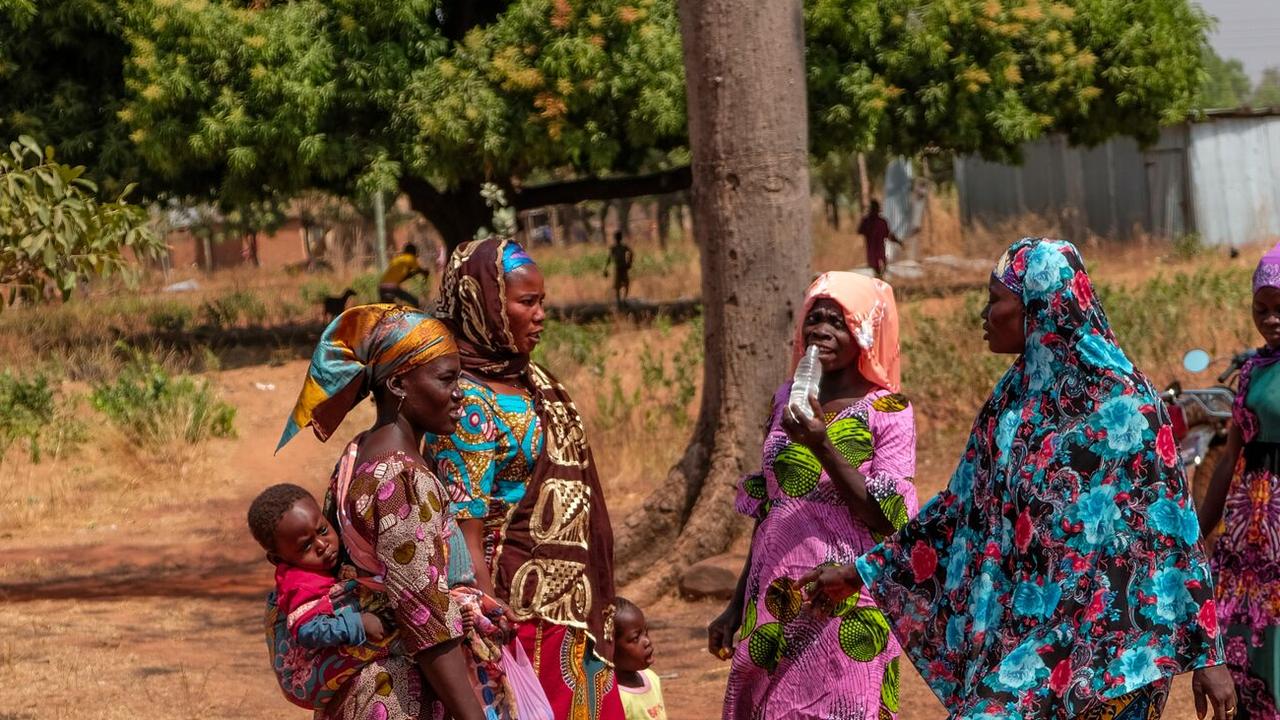
Traditionally, women working in shea production were poorly educated, and their children would often follow in their footsteps.
Now, women working in shea are better able to afford to educate their kids — and once a child receives an education, they’re far more likely to pursue other more highly-paid careers.
While there are still plenty of children likely to go into shea production in the near future, as wealth and education continues to increase, it’s not known how long it can remain a local, handmade industry.
THE TREE OF LIFE
Shea butter is a natural moisturiser made from nuts of the shea tree, which is found throughout Africa.
In Ghana, it is referred to as the “tree of life”, and for centuries women have been transforming the nuts into butter via a long and painstaking process to be used in everything from skincare to cooking, cleaning and even as fuel.
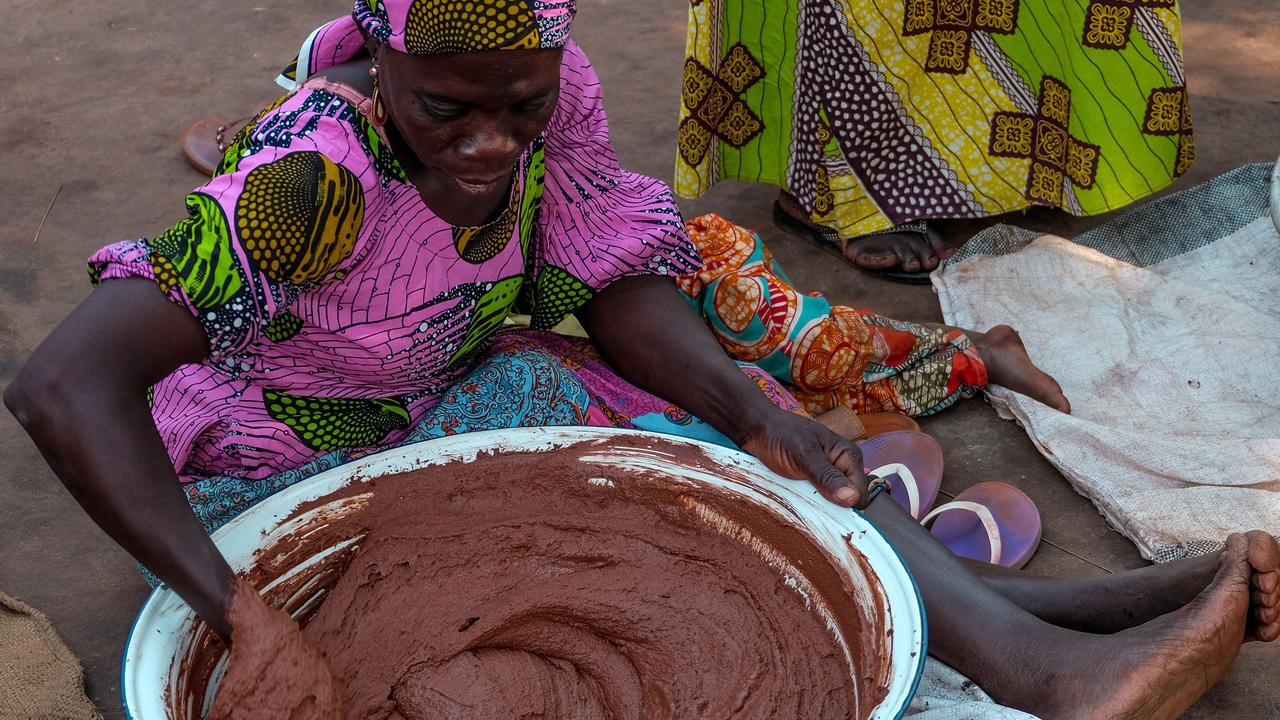
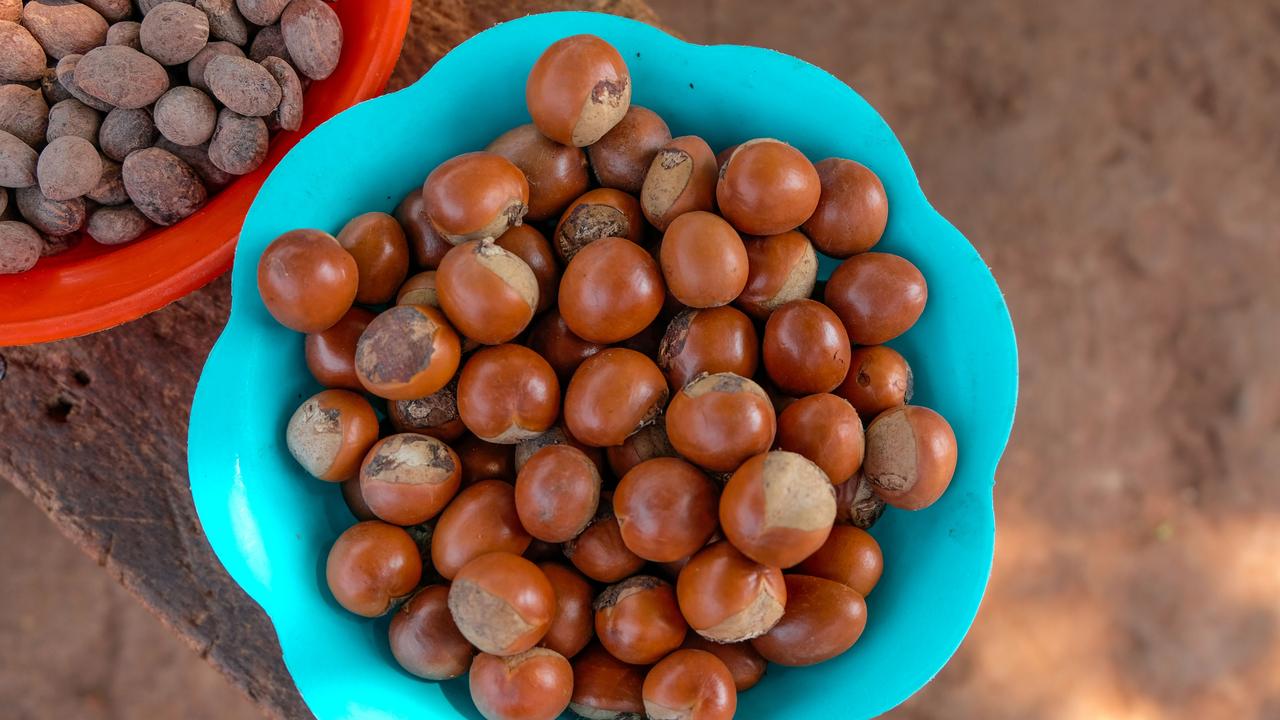
It was almost unheard of outside the continent until The Body Shop founder Anita Roddick visited northern Ghana in 1992, and soon realised its potential.
The first order was placed in 1994, and shea soon became a bestseller.
In fact, the company’s shea butter line is so popular that last year, one product sold every two minutes, with The Body Shop making more than $1 million a year from the top-selling body butter alone.
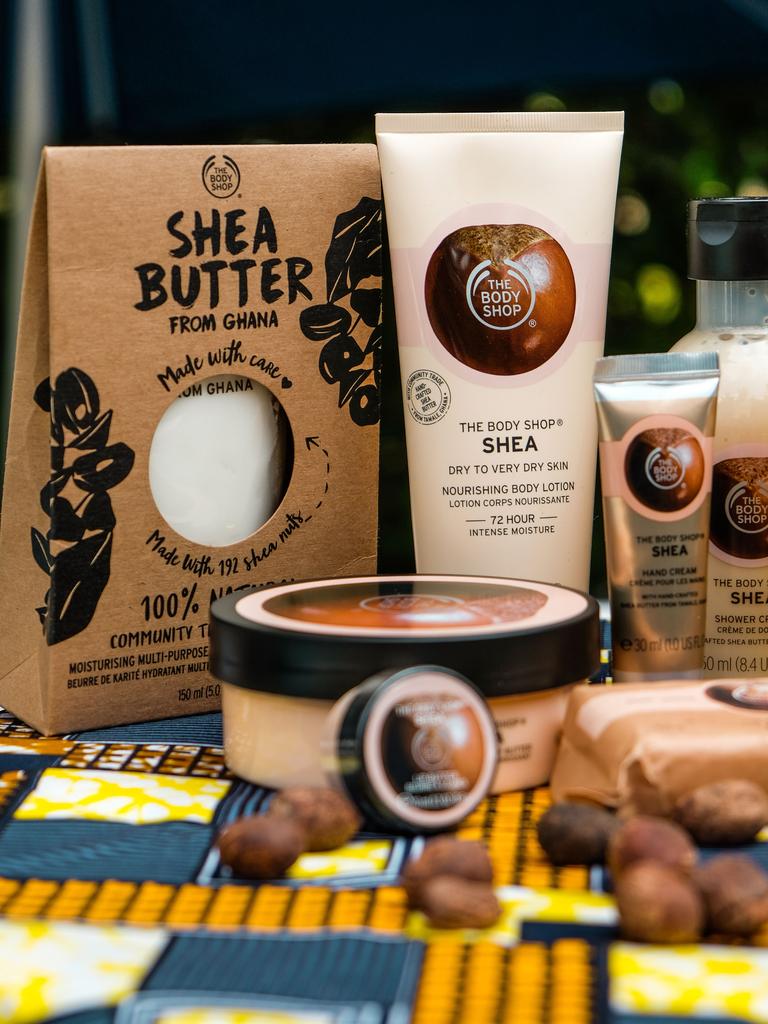
Today it can be found in lip balms, face and body moisturisers and other cosmetics, with its high concentrations of vitamins and fatty acids hailed for softening skin and for its anti-inflammatory and healing properties.
— The reporter travelled to Ghana with the assistance of The Body Shop
Continue the conversation @carey_alexis | alexis.carey@news.com.au




